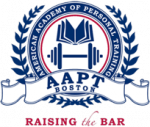Personal Training Certificates vs. Certifications: Knowing the Difference and Why It Matters
Whether you’re looking to become a personal trainer or you want to start working with one, knowing the difference between a certificate and a certification is important. This is because one is simply a “piece of paper:” a badge of sorts that can be obtained online with no prior experience, and the other requires a more hands-on educational experience and a richer knowledge base, giving trainers a stronger foundation for their practice.
Read on to learn about the difference between personal training certifications and certificates, and why it matters.
What is a personal training certification?
A certification can be obtained by paying a fee to take an online course and then passing a test. Certifications are the most common—and easiest—credentials for becoming a personal trainer. There are a lot of different certifications out there, but two of the most well-known are NASM (the National Academy of Sports Medicine) and ACE (American Council on Exercise). Their websites offer a few different packages to become a certified personal trainer in as little as 4 weeks through self-study; the course materials include online course materials like videos, audiobooks, webinars, virtual handouts, and practice tests and quizzes, and the only prerequisite is a high school diploma.
What is a personal training certificate?
A certificate is a credential or diploma you earn from an institution that goes beyond a simple online certification. Certificates, which can be diplomas or degrees, take a lot longer to complete and are much more in-depth than a certification. Completing a certificate program can give trainers more hands-on experience, deeper knowledge, and a better skill set than an online certification. Programs like AAPT’s Master Personal Training Course includes classes in anatomy, physiology, kinesiology, nutrition, and more; practicing training sessions in a gym with real people while receiving in-person feedback from instructors; and the business side of personal training.
Why does this matter?
A personal trainer who has only a certification does not necessarily mean they’re a qualified trainer. Why? Because virtually anyone can take an online test and get a certification. In other words, someone with no prior experience or knowledge of personal training, or even someone who has never set foot in a gym before (!!) can pay to take an online course and declare themselves to be a certified personal trainer in a few weeks.
Not that these certifications don’t have value; most gyms require their personal trainers to have one, (which is why many certificate programs partner with organizations like NASM and will help you obtain a certification in addition to the certificate). But would you, as an employer or a potential client, really want to hire a personal trainer—someone you’ll be working with in-person who needs to know about physical health, body movement, exercise, muscle building, and injury prevention—to have only an online certification, with zero hands-on experience? Probably not.
Of course, novice trainers do have to start somewhere—but the fact that personal training is such a physical job means it’s desirable for them to have some kind of actual experience working with real people before taking on clients.
If you’re thinking about becoming a personal trainer, it may be tempting to go the faster route and complete an online certification without any hands-on training, but wouldn’t you want to have a deeper knowledge base and the confidence that hands-on experience can bring before teaching someone how to properly lift weights?
Stay tuned for our next blog post, which will delve into regulation of certificate and certification programs in the fitness industry and what that means for trainers, employers, and clients.




